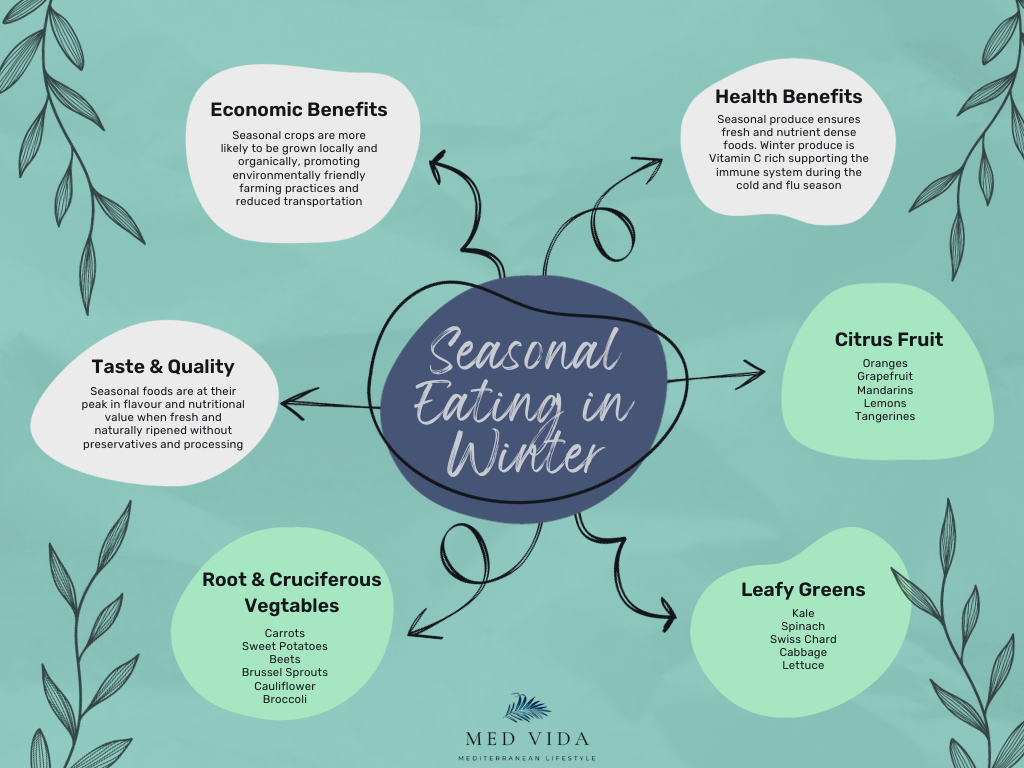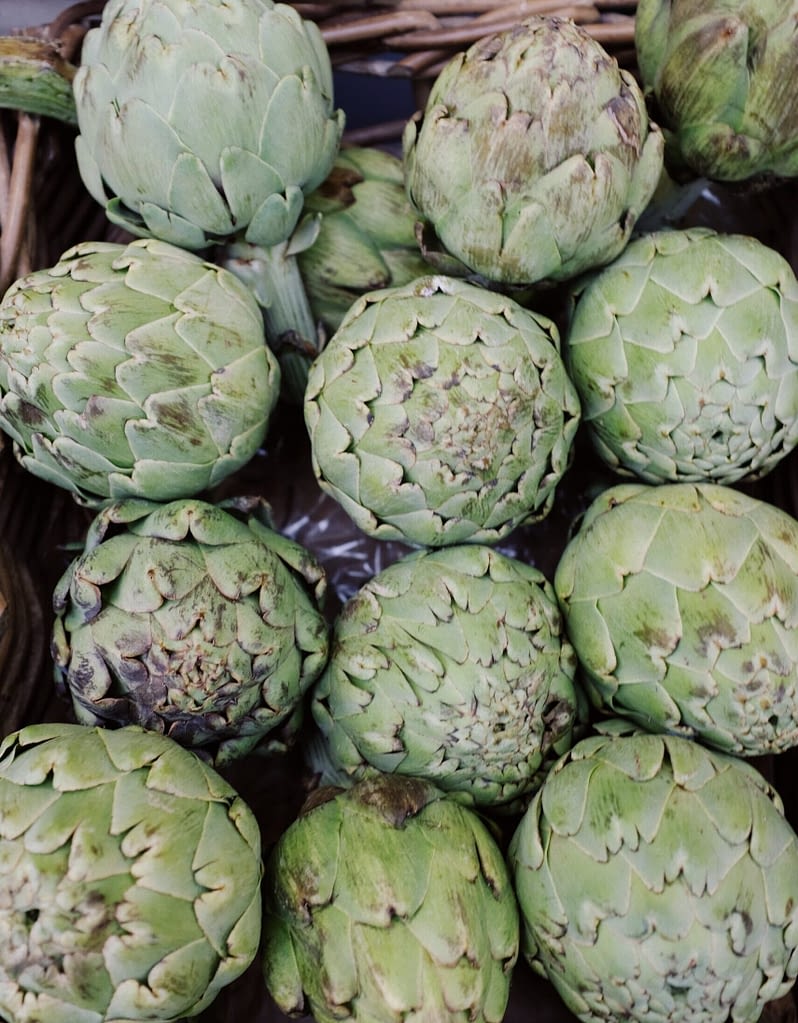How to Eat Seasonally with the Mediterranean Diet in Winter
As the winter chill settles in, it’s the perfect time to explore the rich and diverse offerings of a Mediterranean diet tailored to the season. We guide you on how to eat seasonally. Embracing seasonal eating not only enhances the flavor of your meals but also comes with many benefits for your health, wallet, and the planet.
In this article, we will learn more about the benefits of eating seasonally and tips on incorporating the Mediterranean diet into your winter cuisine. The Mediterranean diet typically feels like a summer warm weather diet, but there is so much more diversity to it than that. We will help you see how the flavors can carry you through the seasons into winter.
Benefits of eating seasonally
Eating seasonally ensures that you consume a variety of fresh, nutrient-dense foods.
Winter produce often includes vitamin C-rich fruits like citrus, which supports the immune system during cold and flu season. Winter vegetables like kale and Brussels sprouts are packed with essential vitamins and minerals.
All provide valuable micro and macronutrients to help fight against ailments at this time of year. They provide the body with a natural supplement of minerals and vitamins to help benefit the body’s defenses.

Economic Benefits
Opting for seasonal produce reduces the need for long-distance transportation, reducing carbon emissions.
In-season crops are more likely to be grown locally and organically, promoting environmentally friendly farming practices.
Shorter transportation means reduced emissions and a better impact on our environment.
Taste and Quality
Seasonal foods are at their peak in flavor and nutritional value. When fresh produce ripens naturally, it develops a richer taste and higher nutrient content.
Enjoying fruits and vegetables at their best not only pleases your palate but also ensures you get the most nutritional bang for your buck.
The flavour and texture of season foods is so much greater because it hasn’t required any processing or preserving
So what’s in Season in winter?

Winter brings a delightful array of fruits and vegetables to the Mediterranean table. Look out for:
Citrus Fruits: Oranges, grapefruits, and mandarins.
– Leafy Greens: Kale, spinach, and Swiss chard.
– Cruciferous Vegetables: Brussels sprouts, cauliflower, and broccoli.
– Root Vegetables: Carrots, sweet potatoes, and beets.
– Herbs: Rosemary, thyme, and sage.
How to Eat Seasonally on the Mediterranean Diet
Adapting the Mediterranean diet to the winter season is a seamless and delicious process. Here are some tips:
Incorporate More Soups and Stews: Create hearty and nutritious soups using seasonal vegetables, legumes, and whole grains. The warmth of these dishes is perfect for the colder months.
Experiment with Citrus-Based Dishes: Citrus fruits add flavor to salads, marinades, and desserts. Try incorporating oranges or grapefruits into your recipes for a refreshing twist.
Roast Winter Vegetables: Enhance the natural sweetness of winter vegetables by roasting them. Drizzle with olive oil and season with Mediterranean herbs for a simple and satisfying side dish.
Recipe Ideas for Your Winter Diet
Citrus and Olive Oil Salad: Toss mixed greens, sliced citrus fruits, Kalamata olives, and a drizzle of extra virgin olive oil together. Sprinkle with a pinch of sea salt for a vibrant and refreshing salad.
Mediterranean Roasted Vegetable Platter: Roast a medley of winter vegetables like Brussels sprouts, carrots, and cauliflower. Serve with a side of hummus or a yogurt-based dip.
Lemon and Herb Quinoa Bowl: Cook quinoa and toss it with lemon zest, chopped herbs (such as parsley and mint), cherry tomatoes, and feta cheese. This light and flavorful dish can be enjoyed warm or cold.
Find some great Mediterranean diet recipe ideas here.
In Summary
Embracing a seasonal approach to your Mediterranean diet in winter not only brings a variety of flavors to your table but also contributes to your well-being, supports local economies, and lessens your environmental footprint.
So, as the winter unfolds, eat seasonally, savor the goodness of the seasonal produce, and let your meals reflect the season’s bountiful offerings.






